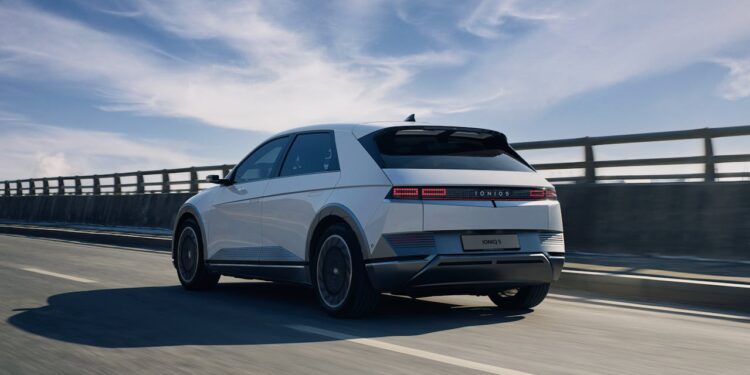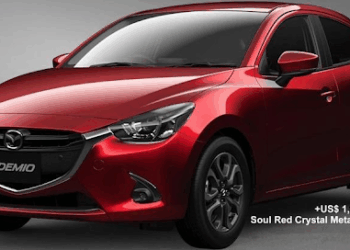As Kenya accelerates towards a more sustainable transport future, electric vehicles (EVs) are becoming a central focus for both the government and private sector. By 2030, electric cars are expected to make a significant impact on Kenyan roads, driven by climate goals, fuel cost savings, and rapid technological innovation.
In this article, we explore the future of electric cars in Kenya, the major players in the market, what’s changing, and what it means for drivers. Whether you’re considering an EV for your next car or simply want to understand where the market is headed, this guide offers a practical outlook.
👉 For more insights into car reviews, driving tips, and automotive updates tailored to Kenya, visit Automag Kenya.
Why Electric Cars Are Gaining Popularity in Kenya
Electric vehicles offer several advantages that are becoming increasingly relevant for Kenyan drivers:
- Fuel Savings: With rising fuel prices, EVs provide significant cost savings per kilometre.
- Lower Maintenance: Fewer moving parts mean fewer breakdowns and lower repair costs.
- Environmental Benefits: EVs produce zero emissions at the tailpipe, helping reduce Nairobi’s worsening air pollution.
- Government Support: Incentives such as tax cuts on EVs and reduced import duty are helping make electric cars more accessible.
What to Expect by 2030: Key Trends and Developments
1. Wider Range of Affordable EV Models
By 2030, Kenyans will have access to more budget-friendly electric cars as manufacturers like BYD, Nissan, MG, and even Tesla increase their presence in the African market.
Affordable models like:
- BYD Dolphin
- Nissan Leaf (already spotted in Nairobi)
- MG4 EV
…are likely to become more common. To explore some of these models on the Kenyan market, check out local listings at Auto24 Kenya.
2. Better Charging Infrastructure
One of the biggest concerns around EVs is the lack of charging stations. By 2030:
- Expect hundreds of charging stations across Nairobi, Mombasa, and Kisumu.
- More residential and office buildings will integrate EV charging points.
- New businesses will emerge offering mobile charging services and EV maintenance.
Read more about how Kenya is preparing for this transformation here.
3. Cheaper Used Electric Cars
As EV imports rise, so will the second-hand market. Vehicles like the Nissan Leaf and BMW i3, now available in Japan and the UK, are expected to become affordable options for Kenyan buyers.
Importing used electric vehicles could become even easier if KRA introduces a revised CRSP (Current Retail Selling Price) list that accommodates EV depreciation fairly. Until then, drivers looking for ready stock can explore local options at Auto24 Kenya, where electric models are starting to appear.
4. Tax Incentives and Policy Support
The Kenyan government has outlined a clear roadmap for EV adoption:
- Zero-rated excise duty on electric cars under specific battery capacities.
- Reduced VAT rates on EV imports.
- Funding to support local EV assembly in partnership with players like Roam and BasiGo.
5. EV Motorbikes and Public Transport Integration
Electric mobility in Kenya is not just about cars:
- Companies like Ampersand and Ecobodaa are electrifying boda bodas.
- BasiGo and Roam are introducing electric buses in urban centres.
- Expect a shift in matatu regulations to favour greener technology by 2030.
Practical Tips for Future EV Owners
Considering making the switch to electric? Here are some practical tips:
- Plan Your Routes: Use apps that show nearby charging stations.
- Install a Home Charger: If possible, get a Level 2 charger installed for overnight charging.
- Track Power Costs: Compare electric bills before and after switching to estimate running costs.
- Learn Battery Care: Avoid frequent full charges to extend battery life.
- Get EV-Specific Insurance: Some insurers offer tailored policies for electric cars.
Challenges to Watch
- High Initial Cost: EVs still have a higher upfront cost, though this is dropping quickly.
- Battery Replacement: Long-term battery degradation remains a concern.
- Power Outages: Kenya’s grid still faces reliability issues, making backup power a plus for EV owners.
Despite these hurdles, Kenya’s progress is undeniable. Read more about the shift towards electrification in our detailed guide here.
Conclusion: The Road to 2030 Is Electric
Electric cars are no longer a distant dream for Kenya. With supportive policies, improving infrastructure, and more affordable models on the way, the country is well-positioned to become a regional leader in EV adoption by 2030.
Whether you’re buying your first car or upgrading to something greener, now is the time to learn more about Kenya’s electric vehicle market.
👉 For second-hand EVs already in Kenya, visit Auto24 Kenya. For the latest reviews and EV insights, keep reading Automag Kenya.




